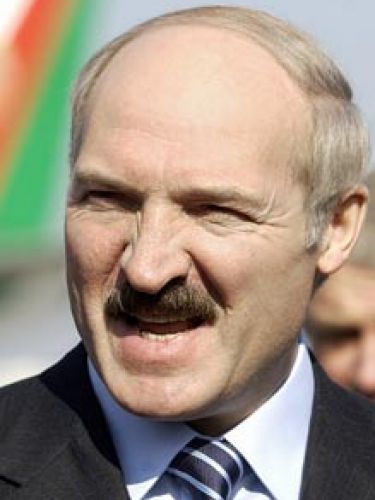This time it did not happen. Lukashenka pressed a different key. He gathered his synkletos and delivered to it the leaders of the Danone Unimilk in Belarus. “If you do not work according to our rules”, he said, “you will not work any more in our market”. The meeting was broadcast on all TV channels.
This was an interesting signal. “Danone Unimilk” is a French-Russian food sector joint venture. It started business in Belarus during the period of half-hearted liberalization. Simultaneously with this demonstrative business flogging, Lukashenka’s eldest son – his security adviser and a number two of the regime – visited Qatar. Thus, that signaled, if the West and Russia join efforts, their businesses would be expulsed from Belarus and replaced by investors from Arab countries, China, and Venezuela.
This is an unusual situation for Europe. You have to deal with a partner that understands only the language of force. The regime relies on the Belarusian KGB – a strong security service, cemented by a fascist corporate ideology. Yet, if you do not fight this tyranny on the borders of the EU, it will metastasize.
European diplomats discussed a long-term response at a donors’ conference in Warsaw on February 2. EU Member States and the United States decided to increase their support for the Belarusian civil society. The complicated matter is how this aid can reach inside Belarus. Sending aid to the European Humanities University in Vilnius (university in exile) and the European Radio for Belarus (broadcasting from Warsaw) is simple because they are based in the EU. But these entities have existed before and already been supported. More aid to them will not change the status quo. Now, innovative mechanisms must be invented for the EU aid to reach NGOs and media outside the EU, in Belarus. Meanwhile, there is an urgent need.
On February 18, the first political trial will start. The jailed leaders of the Christian Democrats youth wing “Young Front”, Zmicier Dashkevich and Eduard Lobau are charged with hooliganism. They were arrested early on the morning of the election day, thus they cannot be accused of taking part or arranging “riots” as other opposition leaders.
The young men were put in the ill-famed “Black Stork” jail in the outskirts of Minsk, which is used to break down incompliant inmates. Lukashenka wants political prisoners to renounce their views and slander opposition leaders. The dictator himself reiterated it with his usual obstinacy. “Three questions, three answers, and they are at freedom” – he said to the parliament.
The guys are holding strong so far. The State TV did not broadcast their “repentance”, as has happened previously with some of the former presidential candidates arrested. Lobau wrote in a note from prison that the jail “is easier than the army.” He had just finished serving in airborne troops. Of course, Lobau wanted to reassure relatives who are blackened from worrying.
There is information leaked that Dashkevich is being blackmailed. Not by his personal fate –this is his second time in jail, and he did not crack last time. They found a different approach this time. In exchange for the “recognition of his guilt,” he has been promised that the KGB will release his 20-year-old girlfriend from prison where she has been incarcerated since December 19. He has refused so far.
No one knows what verdict awaits these young men. The moment is critical for European diplomacy. A just response to any unjust sentence should be a yet tougher EU attitude to the regime. Only an immediate strong reaction to this trial gives the chance that the authorities in Minsk might exercise restraint during following political trials.
If the sentence is harsh the EU reaction should be equally harsh. Further EU steps must be ready. If we manage to get the prisoners out of jail, it will encourage other inmates. Lukashenka will not step back publicly. But European pressure might make him release his hostages at least tacitly.
***
About the author
Andrej Dynko is editor-in-chief of the newspaper Nasha Niva / NN.BY, which became legal once again thanks to EU pressure in 2008. For several years he was the head of Belarusian PEN, which is one of the member organization of the Belarusian Human Rights House. Winner of an international Oxfam Novib / PEN Freedom of Expression Award and a Lorenzo Natali Prize, as well the Russian Channel 1 prize for journalistic courage and professionalism. Vaclav Havel awarded him part of his own Ellenbogen Citizenship Award, calling Nasha Niva “a symbol of independence [and] an island of freedom.” Nasha Niva got the Norwegian Fritt ord award in 2007.
Related articles:
Lukashenko 4.0 – enrich, be free, but without democracy, by Andrej Dynko
This article also published at:





